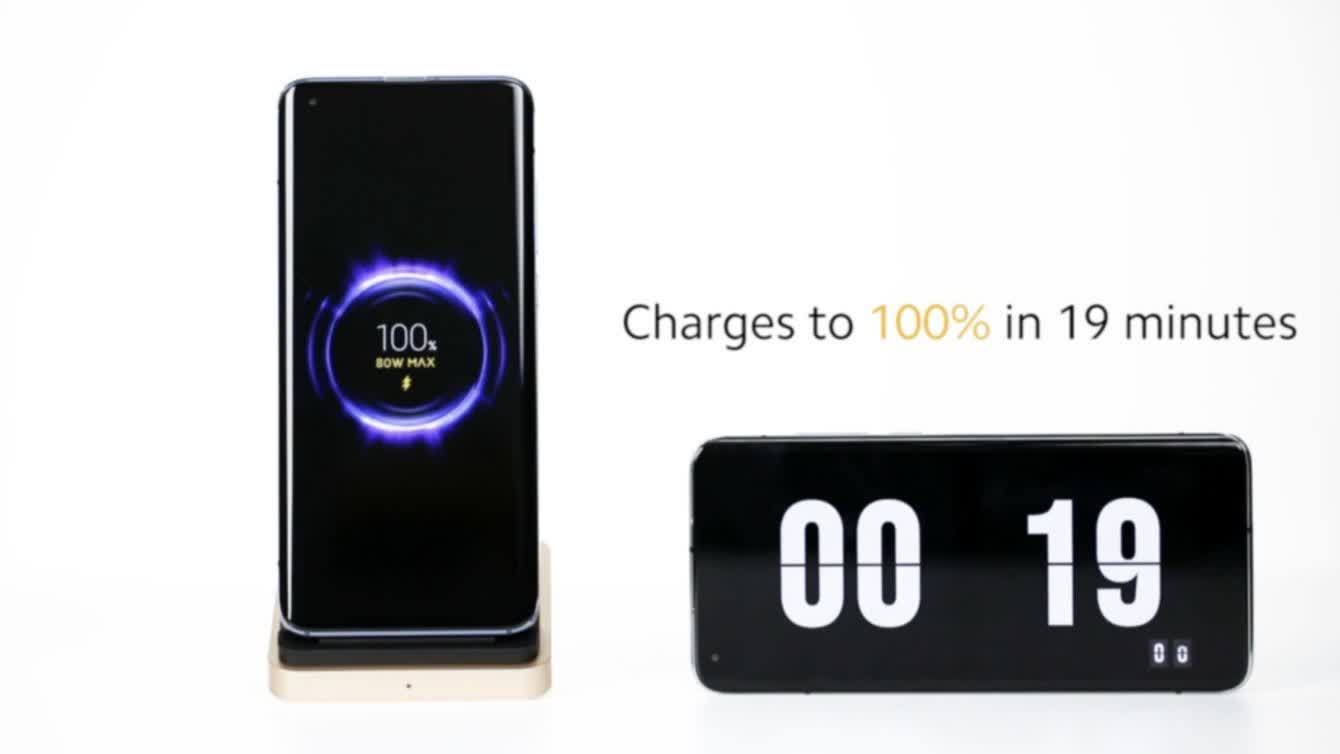Something to look forward to: Xiaomi has long been one of the frontrunners when it comes to fast charging technology, and its new solution sounds quite spectacular: an 80W wireless charger. The Chinese giant claims it can juice a 4,000mAh battery up to 50 percent in just over eight minutes, while reaching 100 percent takes only 19 minutes.
Xiaomi already has an impressive resume when it comes to fast charging; the Mi 10 Ultra supports 120W wired fast charging along with 50W wireless fast charging, the latter of which can fully juice a 4,500mAh battery in 40 minutes.
Xiaomi’s latest innovation cuts its 50W wireless charging time by around half, and just a single minute of charging will fill a 4,000mAh battery to 10 percent. The company has shown this in action (top) using a modified Mi 10 Pro.

Xiaomi is increasing its wireless fast charging speeds at a rapid pace, having announced what it claimed was the world’s first 30W charging solution just last year in the Xiaomi Mi 9 Pro 5G.
The problem with such high-speed charging options, of course, is the concern over how they can affect the battery, potentially reducing its number of recharge cycles and maximum capacity. As noted by Android Authority, Oppo admitted that its 125W Flash Charge causes a battery capacity to fall to 80 percent after 800 full charge and discharge cycles.
No word on when we might see a Xiaomi phone supporting 80W wireless charging, but it could debut in next year’s Mi 11 series.
https://www.techspot.com/news/87171-xiaomi-shows-off-80w-wireless-charging-can-fill.html